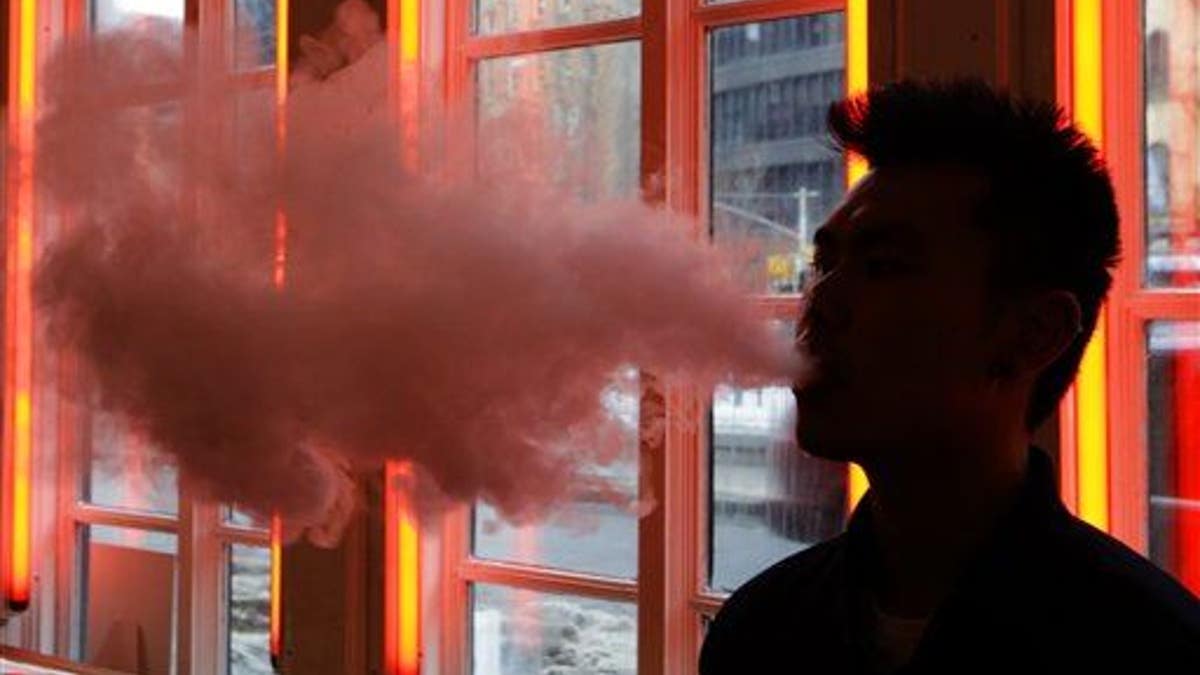
File photo. (AP Photo/Frank Franklin II, File)
A new Harvard University study has cast doubts about the safety of flavored e-cigarettes, many of which have been found to contain a chemical tied to a respiratory disease commonly known as “popcorn lung.”
Researchers at the Harvard T.H. Chan School of Public Health tested 51 e-cigarette flavors sold by “leading e-cigarette brands.” Of these they found that 39 of the 51 flavors contained diacetyl—a chemical commonly used to add flavorings like butter, caramel, strawberry and butterscotch—that has been linked to bronchiolitis obliterans and other severe respiratory diseases.
The U.S.’s Occupational Safety & Health Administration describes bronchiolitis obliterans as occurring when small airways become inflamed and scarred, resulting in the thickening and narrowing of the airways.
The researchers focused their study, which was published by the National Institute of Environmental Health Sciences, on e-cigarettes sold by the largest cigarette companies and on flavors they thought would be appealing to children, teenagers and young adults.
The largely unregulated e-cigarette industry has been a focal point for controversy in recent years, with some health bodies saying they’re a gateway for new or underage smokers, and that flavored e-cigarettes in particular could attract younger smokers. An August study in the Journal of the American Medical Association found that ninth-graders who used electronic cigarettes were more likely to smoke cigarettes, cigars or hookahs than peers who never tried the battery-powered devices.
